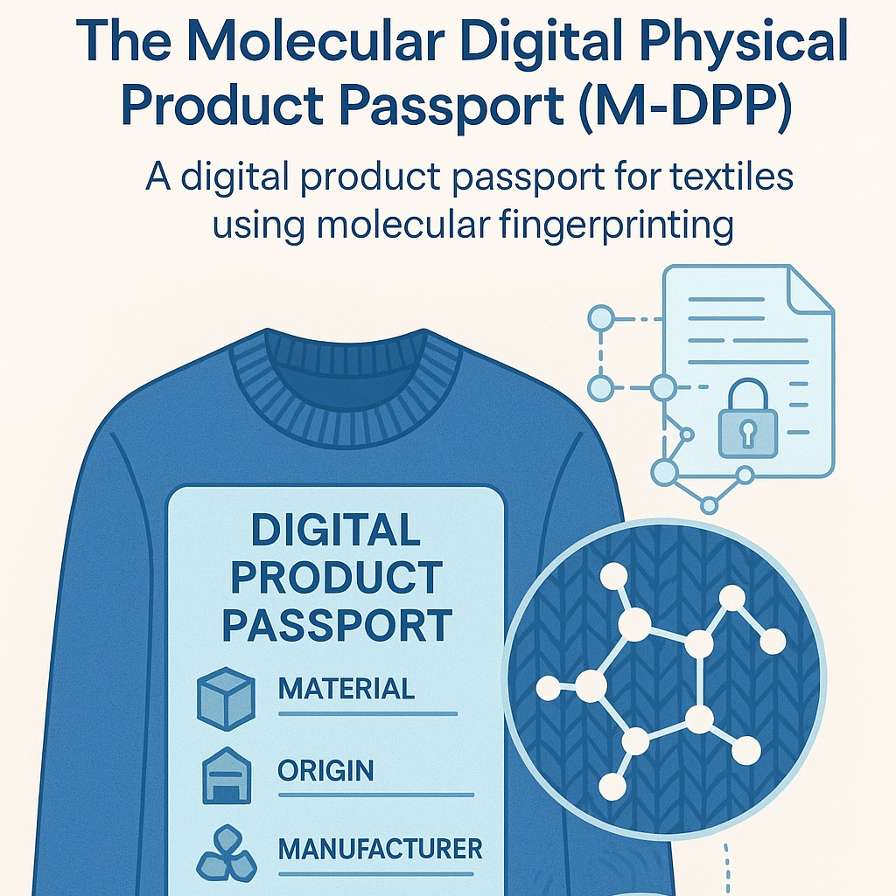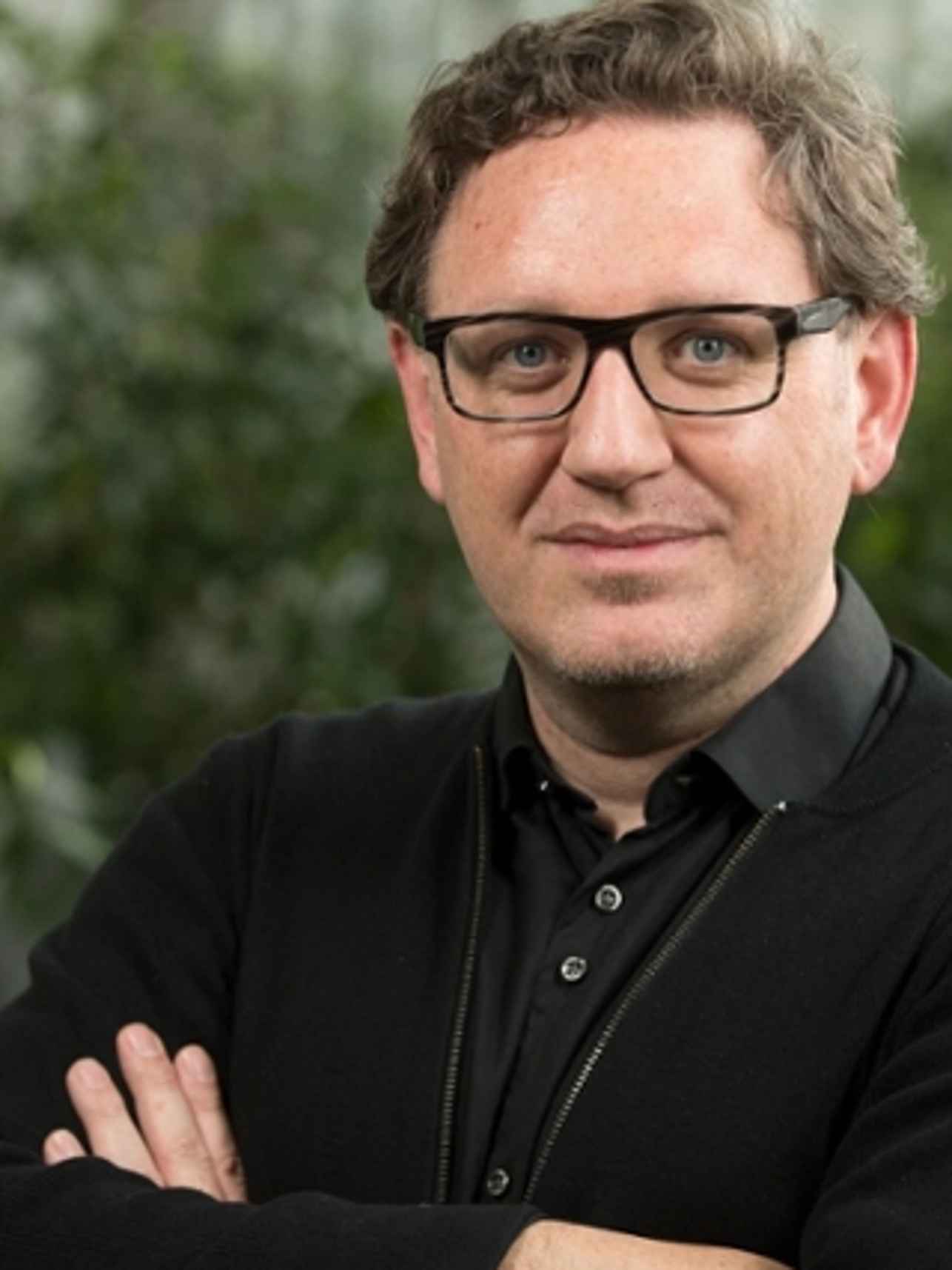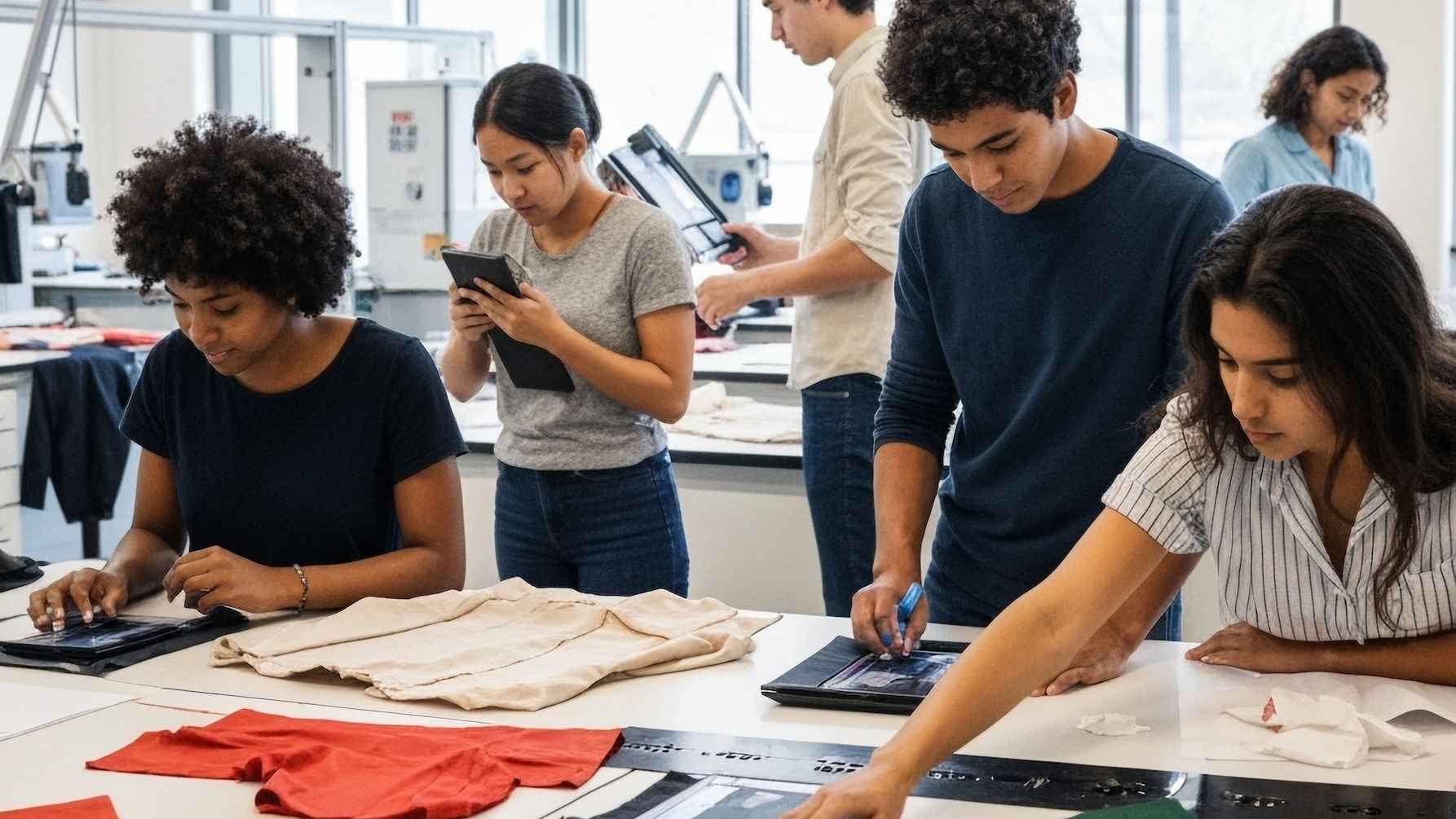M-DPP-Digital passports for traceable fashion

What’s really in your clothes? Where do they come from? And how can you tell if they were produced sustainably? These are the key questions of the Molecular Digital Physical Product Passport (M-DPP) project, an initiative by the Fashion Research & Technology and Responsible IT research groups at the Amsterdam University of Applied Sciences.
This project focuses on developing a digital passport for textiles, linked to molecular fingerprints, that makes information about the composition, origin, and lifecycle of garments accessible and verifiable.
Digitalization as a key to circularity
Led by the Fashion Research & Technology (FR&T) group, M-DPP operates at the intersection of fashion, technology, and circularity.
The project explores how molecular identification and digital infrastructures such as open-source APIs and Web3 technologies can enable reliable, transparent, and durable traceability of textile products.
Co-design and collaboration with industry
A core principle of FR&T’s approach is participatory design.
In Living Labs, the group collaborates with fashion brands, designers, policymakers, and technology partners to co-develop, test, and refine the DPP system. This ensures the tool is both technically robust and practically relevant for Dutch SMEs.
Research, policy, and implementation
FR&T translates European frameworks such as the Ecodesign for Sustainable Products Regulation (ESPR) and its Digital Product Passport (DPP) into practical applications for the textile industry.
M-DPP examines how digital innovation can promote transparency, trust, and circular value creation.

"A new reality is emerging: soon you’ll know exactly what materials your garment is made of, and who was involved in its creation—like the credits of a film, but for your shirt."
Prof. Dr. ir. Troy Nachtigall, Professor of the Fashion Technology research group
Intended outcomes
- Development of a working prototype for a digital product passport for textile products.
- Establishment of an open-source infrastructure (APIs and data protocols) that companies can adopt.
- Creation of guidelines and best practices for implementing DPPs in the Dutch textile sector.
- Strengthening knowledge exchange between education, research, and industry.
- Student involvement in digital and circular design innovation within the fashion field.
Project team
- Project lead: Dr. Troy Nachtigall, Professor of Fashion Research & Technology, AUAS
- Research team: Researchers from Fashion Research & Technology and Responsible IT
- Partners:
- HAN Biobased Innovations
- Candour.Digital
- byBorre
- New Optimist
- Dutch Circular Textile Valley (DCTV)
- New Order of Fashion (NOoF)
- Student contribution: AUAS students assist in data collection, prototyping, and testing within the Living Labs.

Funding
The project is funded through the Digital Product Passports program, which invests €2.7 million in applied research on circular value chains across textiles, electronics, construction, and batteries.
M-DPP runs from 2024 to 2026.
Related project: DPP4CD
FR&T also participates in DPP4CD – Digital Product Passport(s) for Circular Denim: From Pilot to Practice, led by Saxion University of Applied Sciences.
This project focuses on scaling up digital passport solutions within the circular denim sector.
“In DPP4CD, we’re developing an online system that tracks exactly how jeans are made — meaning that during repair or recycling, we know precisely what we’re dealing with,” says Troy Nachtigall.
Together, M-DPP and DPP4CD contribute to the circular ambitions of the fashion industry and a more sustainable Europe.
Relevance to the research group
Within the Fashion Research & Technology research group—which focuses on technology-driven innovations in the fashion industry—M-DPP contributes to the development of circular urban ecosystems and sustainable production chains. The project is also part of the national programme Digital Product Passports in Practice by Regieorgaan SIA.